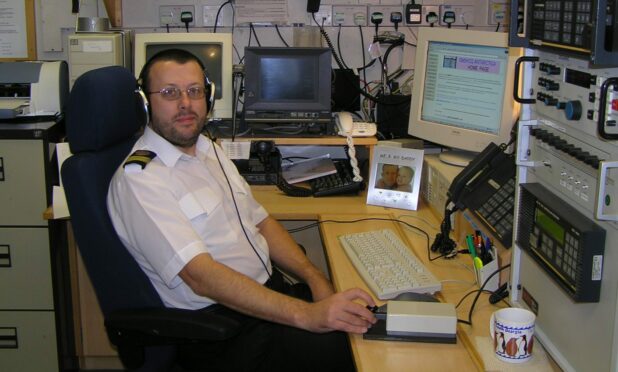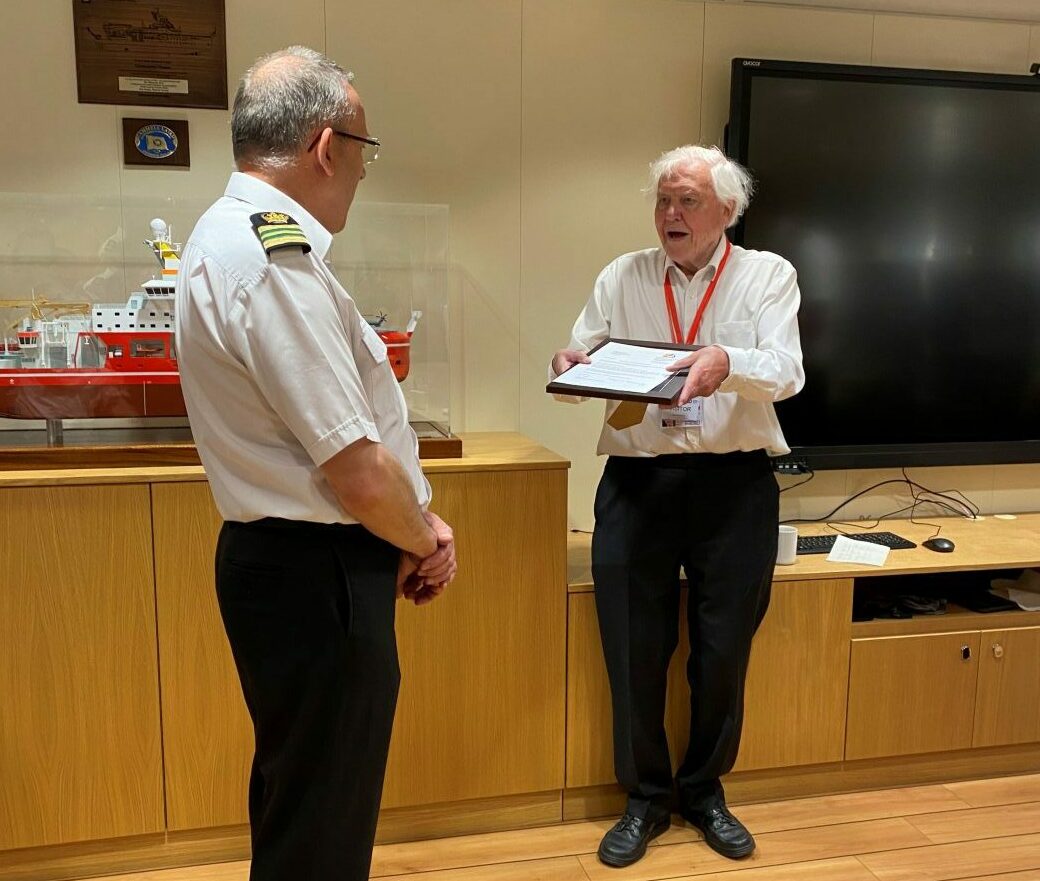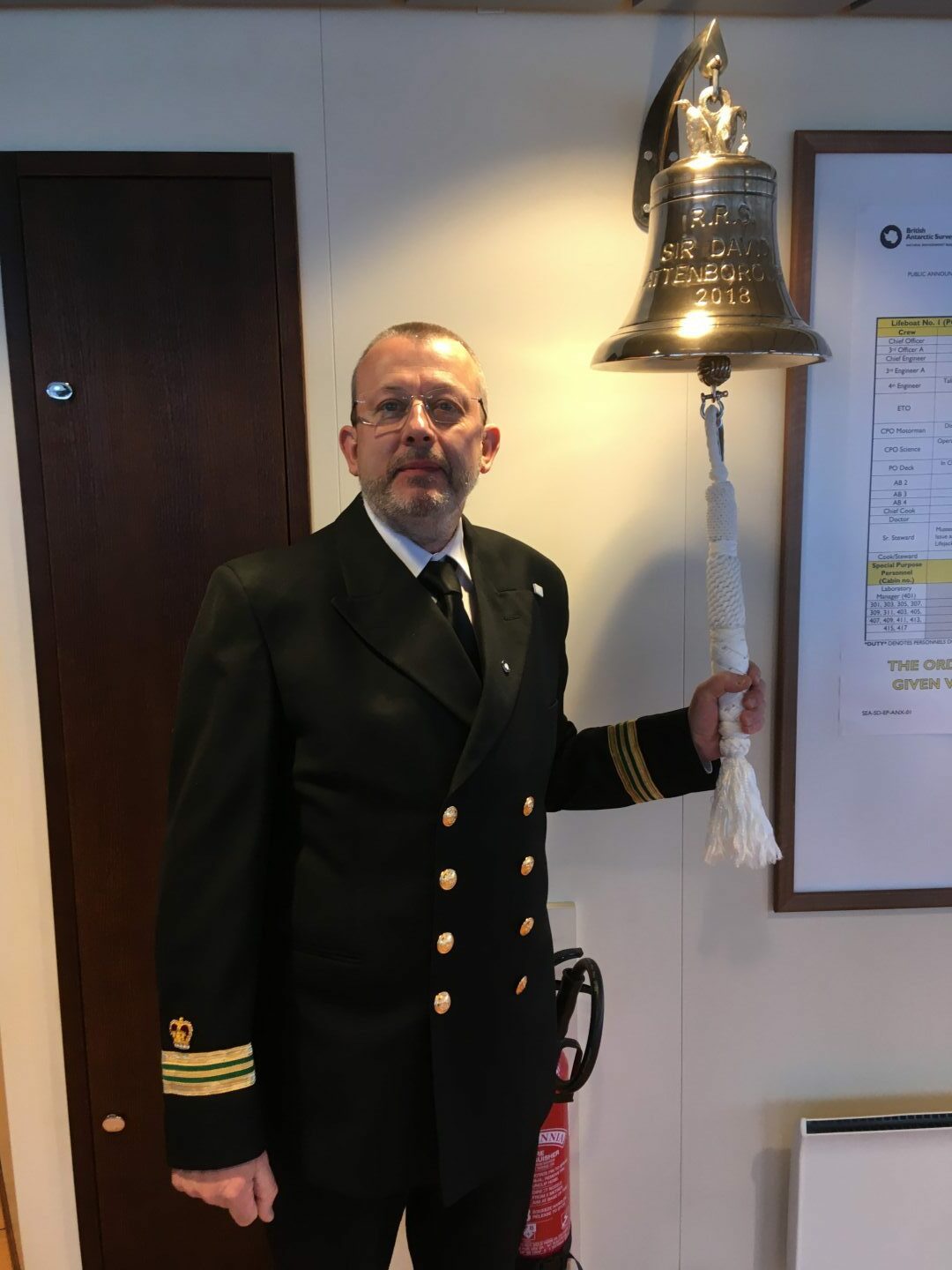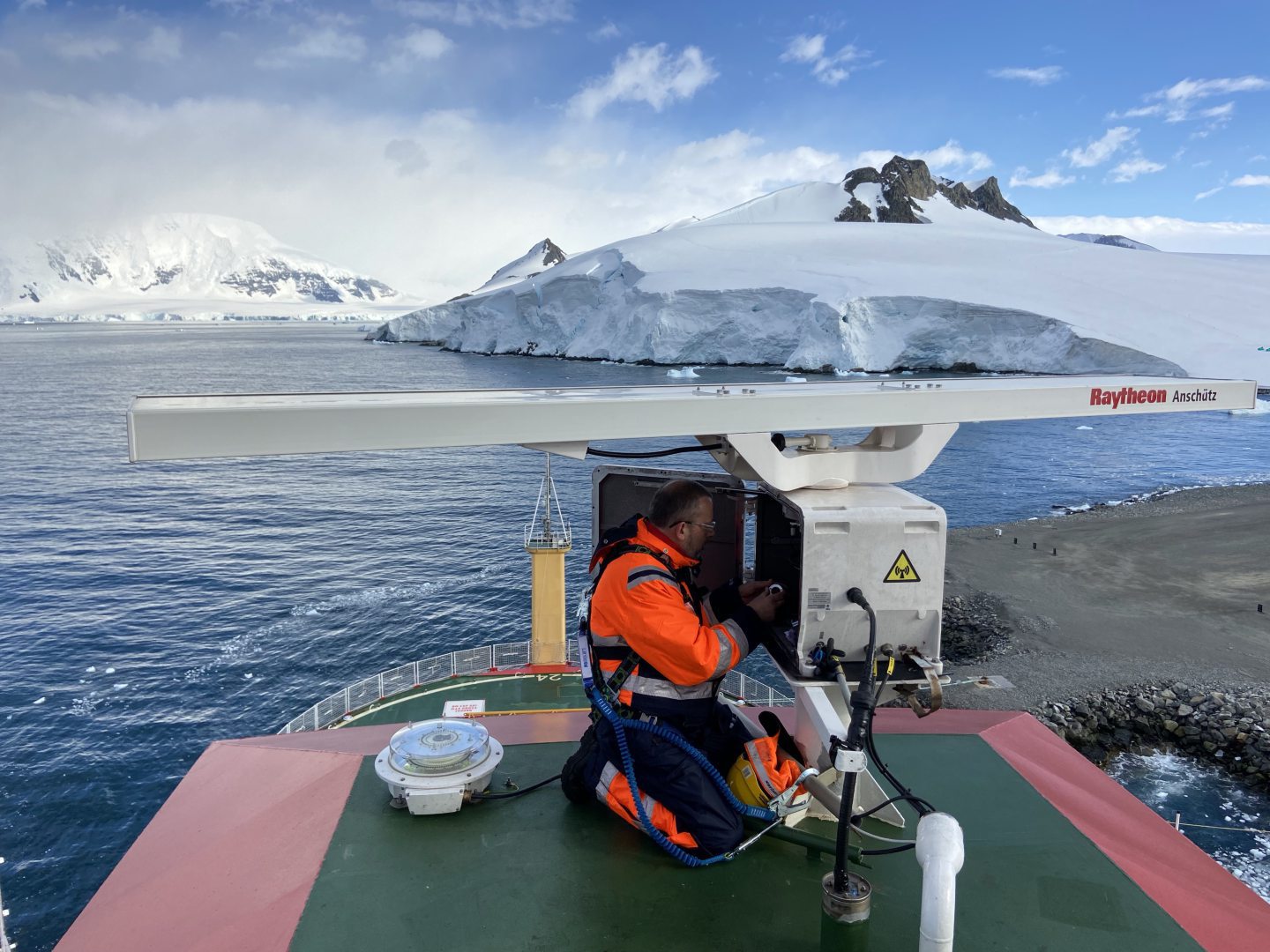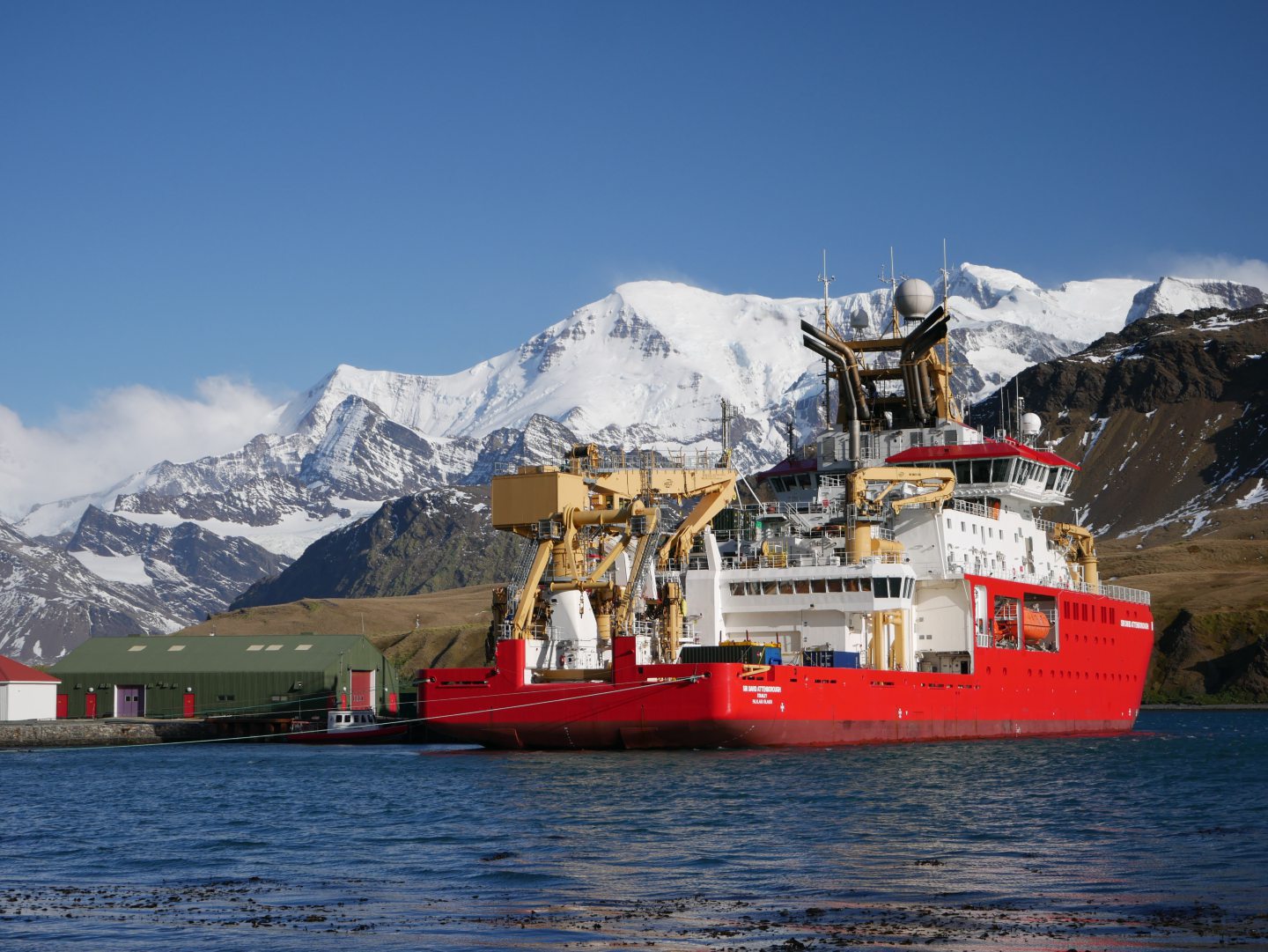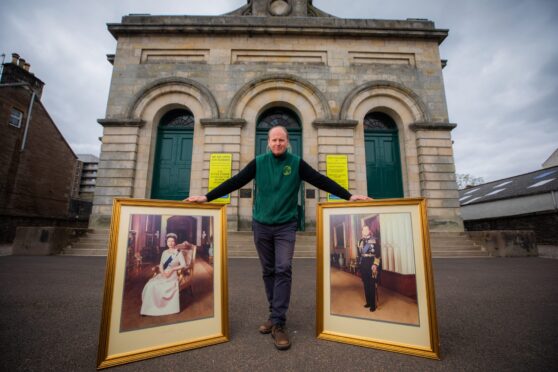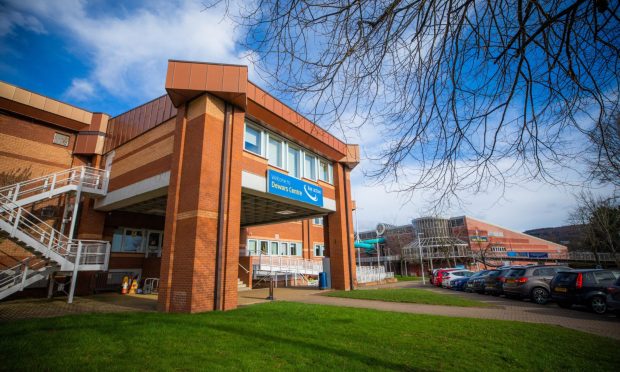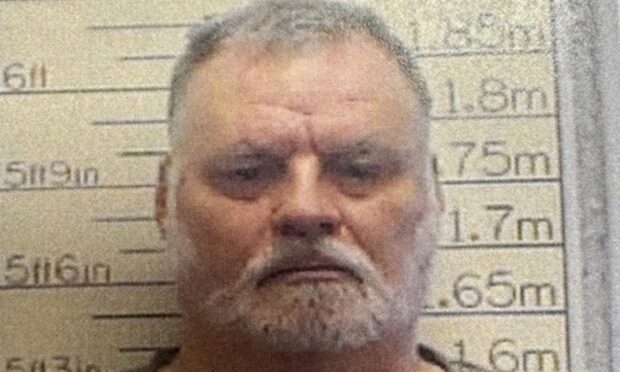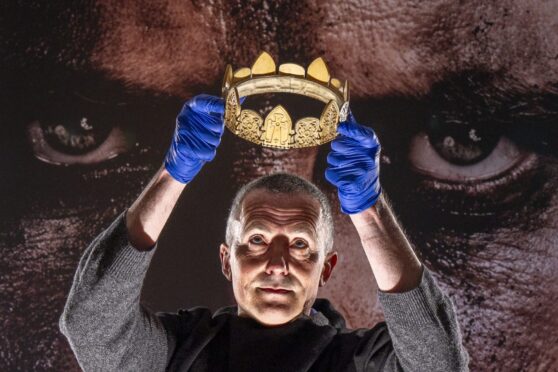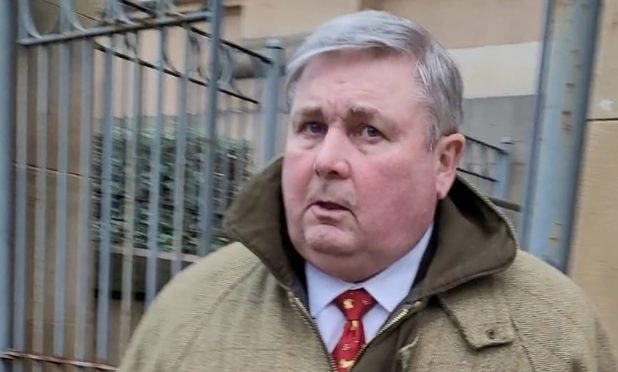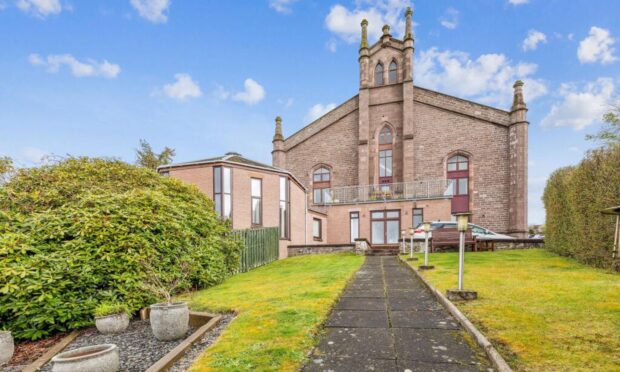A Scone man has had a part of Antarctica named after him in recognition of his lengthy service on the continent.
Mike Gloistein has worked for the British Antarctic Survey since 1990.
He began as a radio officer and is now electronics officer on board the RRS Sir David Attenborough.
The 97-year-old presented Mike, 62, with the surprise honour during a visit on the ship named in the BBC broadcaster’s honour.
Sir David announced that a rocky outcrop off Coronation Island in the South Orkney Islands would be named Gloistein Skerries.
It means Mike’s name will be marked on all future charts and maps of the area.
On a par with captains and explorers
“This makes me feel fantastic,” said Mike, who in 2004 was presented with a polar medal by the then Prince Charles for services to Antarctica.
“It was a bit of a surprise.
“It was planned that David Attenborough would visit the ship and meet the crew.
“So they organised for the Antarctic Place-names Committee to come up with suggestions of names.
“Usually captains and famous explorers get places named after them. And now I am on that list.
“The Skerries are quite small. We sailed past them in January when they were just unchartered rocks.
“The captain at that time said he wanted me to take photos of them. Little did I know why.”
From banking to the South Pole
Working in Antarctica was actually the result of a career change for Mike.
After leaving school he spent the next seven years employed by Natwest in his native Hertfordshire.
“I was always interested in radio,” he said.
“And one day I saw an advert saying ‘see the world as ship’s radio officer’.
“I realised banking wasn’t for me.”
After three years at college he spent some time at the Royal Fleet Auxiliary before moving on to the British Antarctic Survey, initially on a one-year contract.
Thirty-three years later, he is still at the same organisation.
“Ships over a certain size had to carry a radio officer in case of SOS or distress,” Mike explained.
“But now radio is now bottom of the list of things I do.
“I look after all navigation equipment on board and all satellite communications.”
Time away from family
Mike is not a scientist but his work provides the foundation for scientific research.
The British Antarctic Survey tests water for depth and monitors atmospheric conditions.
The latter helped discover a hole in the ozone layer in the late 1970s.
It also surveys glaciers as part of climate studies.
Mike enjoys his job, but it does involve spending three to four months at sea, away from his wife Pauline.
They have lived in Scone since 1999. Daughter Helen works for Rolls Royce and no longer lives in the family home.
He can be away anytime between October and May to coincide with the Antarctic summer.
“We just have a routine,” Mike said.
“I have a home routine and a work routine.
“The ship is my second home. I have a comfortable cabin on board.
“When I first went south you would be away between eight or nine months.
“Whereas now it is usually three months.”
Final trip to ‘stunning’ continent
Winter temperatures in the South Pole can plummet to -60C.
But Mike’s trips are in the continent’s summer, meaning the coldest he has ever experienced is a comparatively mild -26C.
“I have had it colder in Canada when I have been skiing,” he said.
Usually the temperature hovers around the freezing mark, which enables him to get out and enjoy the outdoors.
This will be one of the things he misses when he retires after his final Antarctic trip, likely to be in spring 2024.
“If you want to go anywhere in the world, South Georgia in Antarctica is the ultimate place.
“The scenery is absolutely stunning.
“It has wonderful scenery and superb wildlife, which is very friendly.
“There are seals, penguins, albatrosses, whales. There is such a huge variety.”
